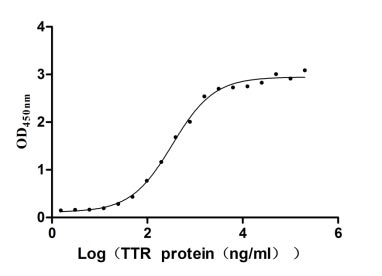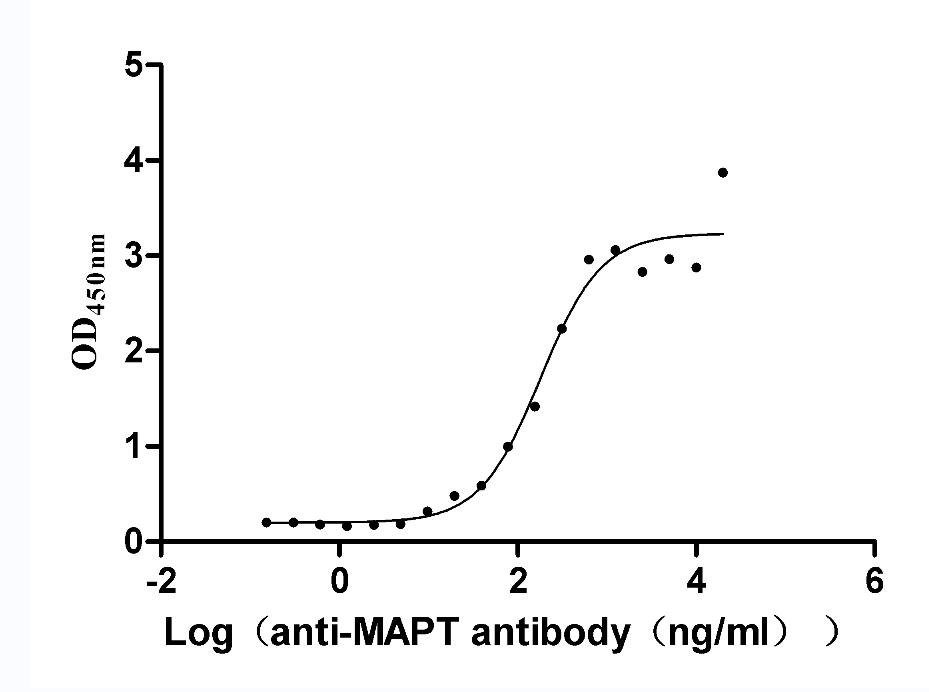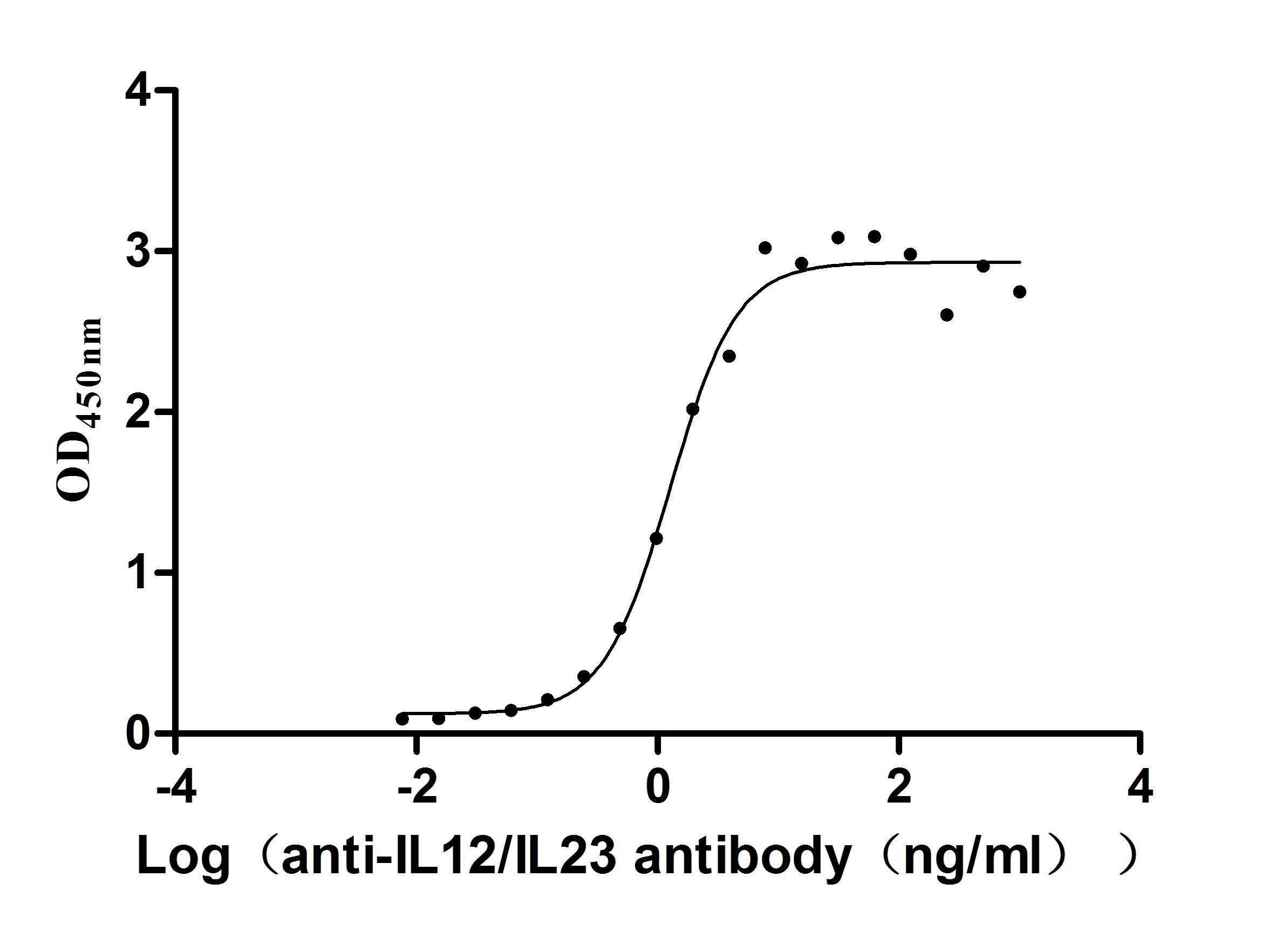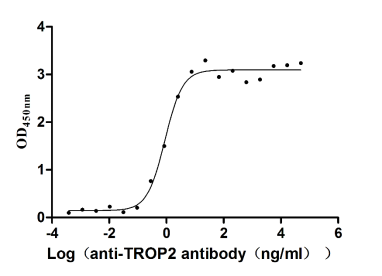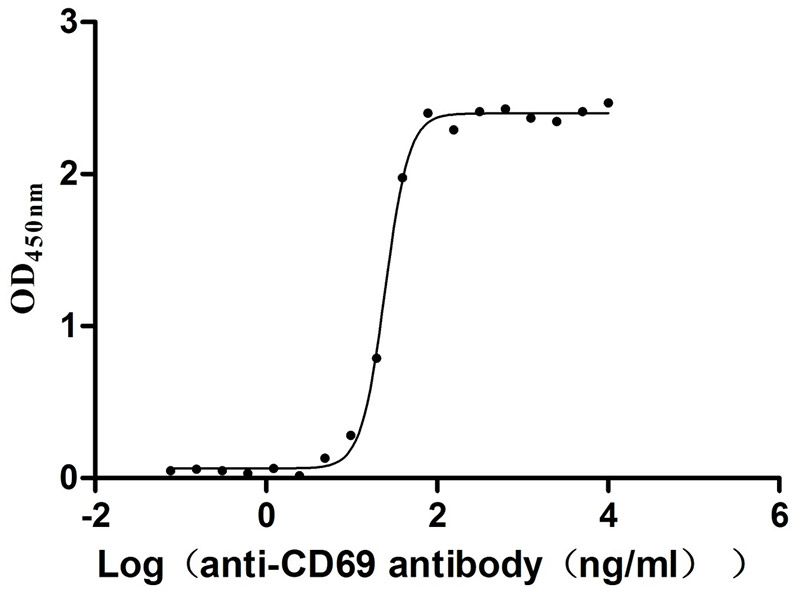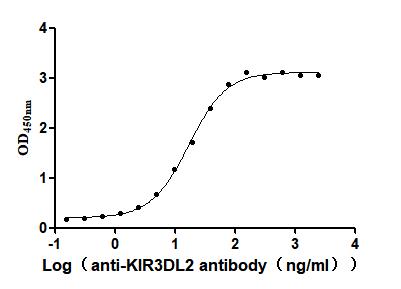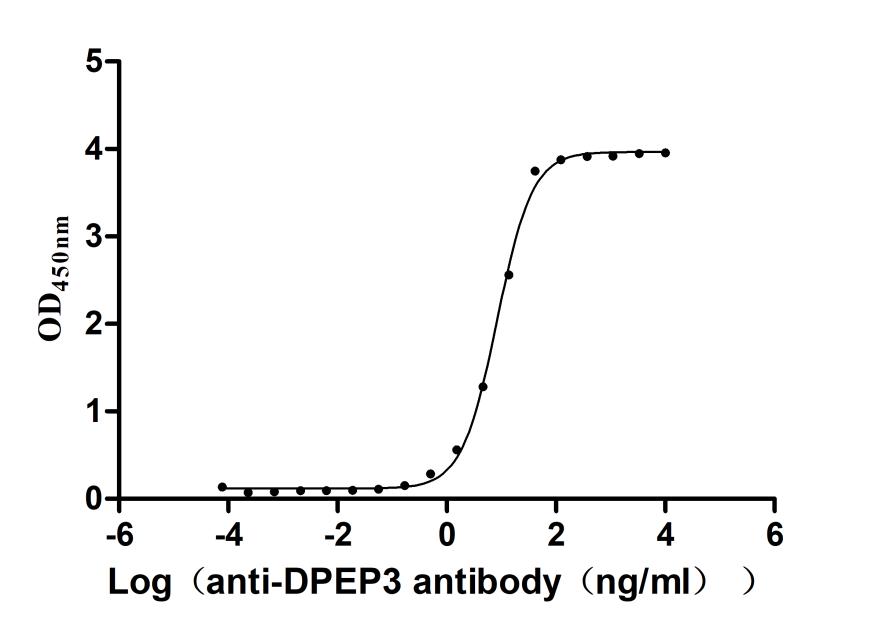Recombinant Human Taste receptor type 1 member 3 (TAS1R3), partial
-
中文名称:人TAS1R3重组蛋白
-
货号:CSB-YP752534HU
-
规格:
-
来源:Yeast
-
其他:
-
中文名称:人TAS1R3重组蛋白
-
货号:CSB-EP752534HU-B
-
规格:
-
来源:E.coli
-
共轭:Avi-tag Biotinylated
E. coli biotin ligase (BirA) is highly specific in covalently attaching biotin to the 15 amino acid AviTag peptide. This recombinant protein was biotinylated in vivo by AviTag-BirA technology, which method is BriA catalyzes amide linkage between the biotin and the specific lysine of the AviTag.
-
其他:
-
中文名称:人TAS1R3重组蛋白
-
货号:CSB-BP752534HU
-
规格:
-
来源:Baculovirus
-
其他:
-
中文名称:人TAS1R3重组蛋白
-
货号:CSB-MP752534HU
-
规格:
-
来源:Mammalian cell
-
其他:
产品详情
-
纯度:>85% (SDS-PAGE)
-
基因名:
-
Uniprot No.:
-
别名:G protein coupled receptor; Sac; Saccharin preference ; Sweet taste receptor T1R3; T1 R3; T1R 3; T1R3; TAS1 R3; TAS1R 3; TAS1R3; Taste receptor type 1 member 3; Taste receptor type 1 member 3 precursor ; TR 3; TR3; TS1R3_HUMAN
-
种属:Homo sapiens (Human)
-
蛋白长度:Partial
-
蛋白标签:Tag type will be determined during the manufacturing process.
The tag type will be determined during production process. If you have specified tag type, please tell us and we will develop the specified tag preferentially. -
产品提供形式:Lyophilized powder
Note: We will preferentially ship the format that we have in stock, however, if you have any special requirement for the format, please remark your requirement when placing the order, we will prepare according to your demand. -
复溶:We recommend that this vial be briefly centrifuged prior to opening to bring the contents to the bottom. Please reconstitute protein in deionized sterile water to a concentration of 0.1-1.0 mg/mL.We recommend to add 5-50% of glycerol (final concentration) and aliquot for long-term storage at -20℃/-80℃. Our default final concentration of glycerol is 50%. Customers could use it as reference.
-
储存条件:Store at -20°C/-80°C upon receipt, aliquoting is necessary for mutiple use. Avoid repeated freeze-thaw cycles.
-
保质期:The shelf life is related to many factors, storage state, buffer ingredients, storage temperature and the stability of the protein itself.
Generally, the shelf life of liquid form is 6 months at -20°C/-80°C. The shelf life of lyophilized form is 12 months at -20°C/-80°C. -
货期:Delivery time may differ from different purchasing way or location, please kindly consult your local distributors for specific delivery time.Note: All of our proteins are default shipped with normal blue ice packs, if you request to ship with dry ice, please communicate with us in advance and extra fees will be charged.
-
注意事项:Repeated freezing and thawing is not recommended. Store working aliquots at 4°C for up to one week.
-
Datasheet :Please contact us to get it.
相关产品
靶点详情
-
功能:Putative taste receptor. TAS1R1/TAS1R3 responds to the umami taste stimulus (the taste of monosodium glutamate). TAS1R2/TAS1R3 recognizes diverse natural and synthetic sweeteners. TAS1R3 is essential for the recognition and response to the disaccharide trehalose. Sequence differences within and between species can significantly influence the selectivity and specificity of taste responses.
-
基因功能参考文献:
- Regarding "consumption of carbohydrates (% energy) and higher amount of sweet foods, respectively...no associations were found for the TAS1R3 alleles." PMID: 29110749
- TAS1R3 gene rs307355 polymorphism found independent risk factor for dental caries experience by logistic regression & increased risk of caries. Moderate caries (4-7 caries) found to be associated w/TAS1R3 rs307355 heterozygous genotype PMID: 25924601
- T1R3 gene expression in the tongue is suppressed by chemotherapy. PMID: 26422579
- The transcripts of TAS1R3 and UCN2 in peripheral blood cells may be considered potential biomarkers of consumption of sugary and fatty food, respectively, to complement data of food-intake questionnaires. PMID: 26168276
- Five amino acid residues in cysteine-rich domain of human T1R3 were involved in the response for sweet-tasting protein, thaumatin PMID: 23370115
- T1R3 is a receptor responsible for the detection of calcium by taste. PMID: 22773945
- Overexpressed the human N-terminal domain of T1R3 in E. coli and found that the refolded protein behaves as a dimer; showed that hT1R3-NTD is functional and capable of binding sucralose with an affinity in the millimolar range. PMID: 22450161
- amino acid substitutions (F749S and R757C), located in the transmembrane domain of T1R3, severely impair receptor functions in vitro PMID: 21422378
- The sweet taste receptors (alpha-gustducin and T1R3) are involved in glucose-stimulated secretion of GLP-1 and PYY. PMID: 21324568
- Allelic polymorphism within the TAS1R3 promoter is associated with human taste sensitivity to sucrose. PMID: 19559618
- The mechanism of interaction of the sweet protein monellin with T1R2-T1R3 receptor. PMID: 12706725
- cysteine-rich region of T1R3 has a role in determining responses to intensely sweet proteins PMID: 15299024
- An immunohistochemistry study to determine whether and where T1R3 may be localized in the liver and pancreas. PMID: 15585941
- transmembrane domains of human T1R3 bind with lactisole to inhibit sweet taste PMID: 15668251
- Although T1R2-T1R3 is known to have multiple potential ligand-binding sites to receive a wide variety of sweeteners, the present study is apparently the first to identify the ATD of hT1R3 as a new sweetener-binding region. PMID: 17499612
- These results show that T1R2 and T1R3 receptors, in addition to their role in taste perception, may also have a role in intrahepatic cholangiocytes. PMID: 17928076
- Expressed in the sweet/umami gustatory pathways in taste receptor cells and trigeminal neural pathways in transgenic mice. PMID: 18539481
- The heteromeric G-protein-coupled receptor T1R2:T1R3 responds to a vast array of chemically diverse natural and artificial sweeteners. PMID: 19083128
- Variations in perception of umami taste correlated with variations in the human TAS1R3 gene. PMID: 19587085
显示更多
收起更多
-
亚细胞定位:Cell membrane; Multi-pass membrane protein.
-
蛋白家族:G-protein coupled receptor 3 family, TAS1R subfamily
-
数据库链接:
Most popular with customers
-
Recombinant Human Transthyretin (TTR) (Active)
Express system: Mammalian cell
Species: Homo sapiens (Human)
-
Recombinant Rat Microtubule-associated protein tau (Mapt) (Active)
Express system: Mammalian cell
Species: Rattus norvegicus (Rat)
-
Recombinant Human IL12B&IL12A Heterodimer Protein (Active)
Express system: Mammalian cell
Species: Homo sapiens (Human)
-
Recombinant Human Tumor-associated calcium signal transducer 2 (TACSTD2), partial (Active)
Express system: Mammalian cell
Species: Homo sapiens (Human)
-
Recombinant Human Early activation antigen CD69 (CD69), partial (Active)
Express system: Mammalian cell
Species: Homo sapiens (Human)
-
Recombinant Human Killer cell immunoglobulin-like receptor 3DL2 (KIR3DL2), partial (Active)
Express system: Mammalian cell
Species: Homo sapiens (Human)
-
Recombinant Macaca fascicularis Dipeptidase 3(DPEP3) (Active)
Express system: Mammalian cell
Species: Macaca fascicularis (Crab-eating macaque) (Cynomolgus monkey)


